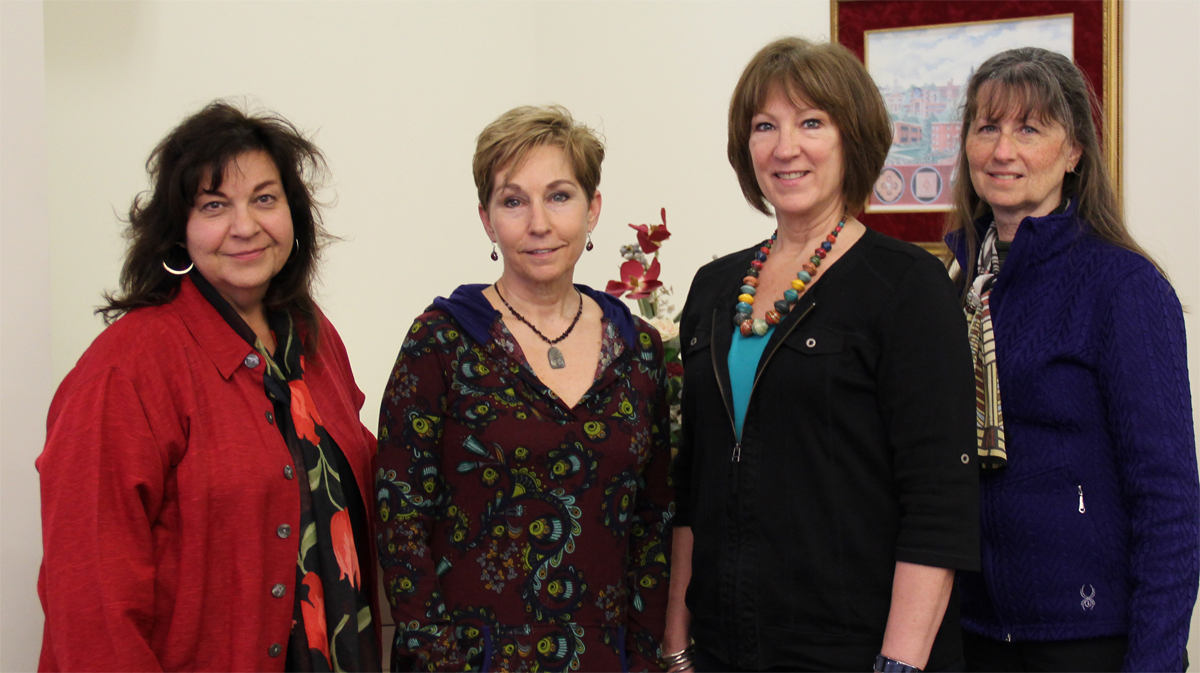Research shows that homeless people experience a much lower quality of health than the general population, and that negative attitudes of health care providers can worsen their situation. A team of faculty members from the Mennonite College of Nursing have been researching the perspective homeless people have on the nursing care they receive, and the impact this has on their overall health.
Associate professors Wendy Woith, Sheryl Jenkins, and Cynthia Kerber, and Interim Dean for Undergraduate Programs Kim Astroth interviewed 15 homeless people about their experiences when being seen by health care providers, as part of a civility research project.
“We have looked at nursing students and civility, including academic honesty and integrity,” said Woith. “We’ve also looked at ways to help raise student awareness of incivility and how it hurts others around them.” Now, the team is moving beyond nursing students and looking the health care workers’ perception of homeless people, and how that affects the care that they receive.
Jenkins has been involved in a homeless ministry for several years, and initiated the idea. “Many of them have expressed to me they are treated poorly by nurses and other health care professionals, and I wanted to explore that issue further,” she said. Astroth added, “I worked in the emergency department setting early in my career and am familiar with the less-than-positive attitude toward individuals who are poor or neglected. It was distressing to me then, and I am distressed that 30-plus years later, it is still an issue.”
After asking questions—such as how their experience was in a health-care setting, did the nursing staff educate them on their illness, and if they have a primary health care provider—the team found that homeless people do believe that nurses treat them differently and that nurses don’t take time with them. “One of the things we discovered is that homeless people feel nurses should be civil to them, take them seriously, be compassionate, empathetic, and attentive,” said Woith. “Homeless people feel they are put in a room and ignored. Then, when they tell the nurse about their health care issues, the nurse doesn’t listen or give it any credence.”
“Homeless people are vulnerable to a variety of health problems. Their health age is 10-15 years older than their chronological age,” said Kerber. “They, as a group, seem to avoid preventative and routine health care visits, which may be for financial reasons. Other reasons for avoiding or delaying care could be unkind treatment.”
“It is easy for us as nurses to judge what we think is important to others…. But the only way to truly individualize care is to talk with those who are seeking care,” said Astroth.
“I think in general people have their own lenses from which they view the world. And they often feel that they are being treated differently,” added Woith. “I know what goes on in an ER and it gets really, really busy and there are a lot of people who feel like they are ignored. And if they already have something else like they are elderly, or a different race or ethnicity, or transgender they may feel the reason they are being ignored is because of the thing that they already feel sets them apart.”
The team feels civility is a fundamental value in the nursing profession and the next piece of the study involves taking a look at nursing students and their perceptions of homeless people. “We want to try to see what we can do to make sure our nursing students see a homeless person as someone who should be taken care of, and someone who deserves as good of treatment as any other patient,” said Woith. “Social justice is a fundamental value of the nursing profession and drives the mandate that we provide competent, compassionate care for the vulnerable people we service, including the homeless.”
Astroth added, “Implementing the next part of our study with nursing students seems to be a logical next step. I think increasing awareness of the importance of social justice and civility in their interactions with all patients is critical.”


